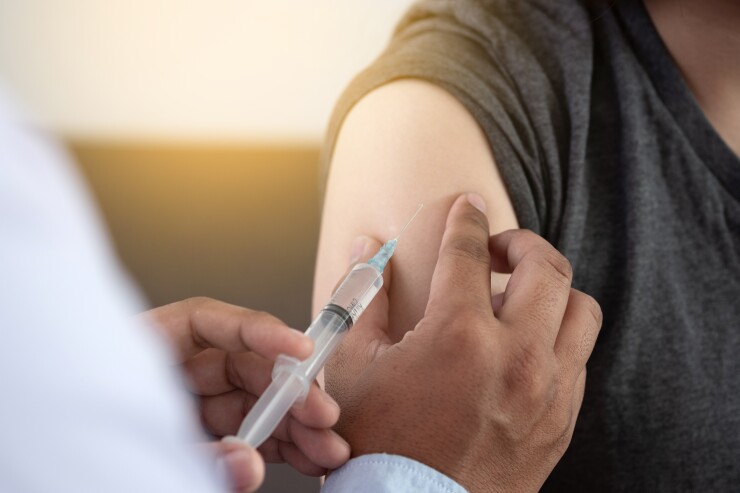COVID-19 has ushered in a series of federal provisions intended to expand
The Public Readiness and Emergency Preparedness Act, or PREP Act, is one such measure on the chopping block. Set to expire in 2024, the PREP Act allows pharmacies to administer pediatric-recommended vaccines and COVID-19 vaccines, expanding the role they play in immunization amid the pandemic. While 25 states have already made this authority permanent, the other half of America has not.
"Patients who are used to going to the pharmacy to get their immunizations will have to figure out somewhere else to go unless the states take action and codify the PREP Act," says Robert Popovian, chief science policy officer at Global Healthy Living Foundation, a non-profit that advocates for chronic health conditions. "If we're all supposed to be in on equity, the worst thing you can do is remove this access from patients."
Read more:
The Global Healthy Living Foundation found that of the COVID vaccinations made available through medical centers and pharmacies, over 90% of those vaccinations were administered at pharmacies in the last three years. A similar trend was noted for the shingles vaccines, while 60-70% of vaccinations during flu season also took place at pharmacies.
Popovian doesn't find this data too surprising, given that there is far more widespread access to pharmacies than doctors' offices. In fact, according to the CDC, about 91% of the U.S. population lives within five miles of a community pharmacy, making pharmacists the most accessible healthcare professionals in the country, explains Popovian.
To make matters worse, low-income communities have 15% more pharmacies than physicians, and when adjusting for hours of operations (doctors' offices are usually open nine-to-five), pharmacy locations offered nearly 96% more operating hours than the physician practice sites, according to the Journal of the American Pharmacists Association. The end of the PREP Act will put these communities at risk.
Read more:
"Low-income communities have poor access to healthcare in general," says Popovian. "By choosing not to expand the authority of pharmacists to immunize, you're creating less equitable access to care in communities that are often over-represented by racial and ethnic minorities."
Popovian underlines that not only does the end of this provision hurt the most vulnerable populations, but it damages public health even further.
"Vaccinations are the most cost-beneficial intervention in the healthcare system — we get vaccinated to reduce the burden of illness and morbidity," he says. "When you hinder a patient's ability to get a vaccination, they could get sick, become hospitalized and even die."
As Popovian points out, one of the vaccinations' primary purposes is to prevent the mass public from getting sick to the point of hospitalization, subsequently adding pressure to already under-staffed hospitals and seeing the loss of more lives due to an overwhelmed healthcare system. The end of the PREP Act is a blow to immunization efforts, and it's one that the U.S. cannot afford. Over 3,000 people are still dying from COVID each week, with only 15.7% of the U.S. population having the latest booster.
Read more:
Popovian advises employers to at least ensure their workers can get their vaccinations for free without worrying about co-pays, deductibles or waiting on reimbursement. Notably, Moderna and Pfizer are considering pricing their COVID vaccines up to $130 per dose — despite the most expensive price paid by the government being $30 per dose for Moderna's latest booster.
Popovian even asks employers to go as far as lobbying for the expansion of pharmacist authority, noting that lower vaccination rates will cost employers.
"As an employer, the last thing you want is to have an employee get sick, unable to come to work and, god forbid, become disabled," he says. "You have a responsibility to voice your opinions to your state."






